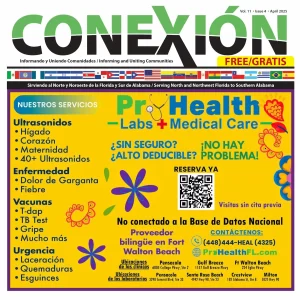HEART AWARENESS MONTH
Written by: Marcos Otero, Retired Physician Associate
February is HEART AWARENESS MONTH, a time to focus on the vital importance of heart health. The heart, a powerful muscle, deserves our attention and care to ensure its protection and nourishment.
The heart
The heart is a muscular organ about a fist’s size, located just behind and slightly left of the breastbone. It pumps blood through the arteries and veins of the cardiovascular system.
Your heart beats about 100,000 times in one day and about 35 million times in a year.
Your heart will beat more than 2.5 billion times during an average lifetime.
Heart disease is a significant cause of disability and is the leading cause of death in the United States. Certain risk factors make your heart more predisposed to illness and damage.
Risk Factors
Some risk factors are beyond your control. What are these risk factors?
- Age: the older you get, the more this plays a role.
- Sex: women tend to be somewhat protected by female hormones.
- Race: Blacks have a higher risk than Hispanics.
- Family History: you cannot change history, so if you have a close family member who has or had heart disease at an early age, you are more prone to being affected.
What can I do to lower my risk of heart disease?
Thankfully, there are modifiable risk factors that you can address to significantly reduce your chances of developing heart disease:
- Control your blood pressure. High blood pressure is a significant risk factor for heart disease. You must monitor your blood pressure and get it checked periodically—at least once a year for most adults and more often if you have a history of elevated blood pressure. You can help reduce your blood pressure by maintaining weight and following a healthy lifestyle.
- Keep your cholesterol and triglyceride levels under control. High cholesterol and triglycerides (lipids) can cause blockages and clog your arteries. They can also raise your risk of coronary artery disease and heart attack. Lifestyle changes and certain medications (if needed) can lower your cholesterol.
- Maintaining a healthy weight is crucial, as obesity is a significant risk factor for heart disease. By controlling your weight, you’re taking a proactive step towards a healthier lifestyle.
- Eat a healthy diet. Limit saturated fats, foods high in sodium, and added sugar. Eat plenty of fresh fruits, vegetables, and whole grains. The DASH diet is an example of an eating plan that can help lower your blood pressure.
- Exercise helps strengthen your heart and improve your circulation. It also enables you to maintain a healthy weight, lower cholesterol, and maintain blood pressure. Exercise is a cornerstone of a healthy lifestyle.
- Limit alcohol. Excessive alcohol consumption raises your blood pressure. It also contains a large number of calories that can increase your weight. Alcohol use also can cause many other detrimental health problems.
- Don’t smoke. Tobacco use is a major risk factor for cardiac diseases, pulmonary diseases, and cancers. Cigarette smoking raises your blood pressure and increases your chance of heart attack and stroke. If you smoke, quitting will lower your risk for heart disease.
- Stress. Stress is also linked to heart disease. It can raise your blood pressure and lead to unhealthy coping mechanisms such as overeating, heavy drinking, drug use, and smoking. These behaviors are detrimental to your health and can increase your risk of heart disease. Instead, consider healthy ways to cope with stress, such as exercise, meditation, or seeking professional help if needed.
- Manage diabetes. Diabetes doubles your risk of diabetic heart disease. Uncontrolled diabetes, over time, damages your blood vessels and the nerves that control your heart and blood vessels. Get tested for diabetes periodically. If you have diabetes, work diligently to keep it under control.
- Make sure that you get enough sleep. Not getting enough sleep raises your risk of high blood pressure, obesity, and diabetes. All of these three can increase your risk of heart disease. An example of sleep problems is sleep apnea, which interferes with your ability to get adequate rest and raises your heart disease risk. If you believe you have sleep problems, discuss them with your medical provider.
For more about the heart and conditions that affect it please visit our website at conexionflorida.com.
The following are a few examples of articles you can read on our website.
Please visit and read.
Remember, your heart health is important, so be proactive and consult with a healthcare professional regularly. Stay healthy and safe.



